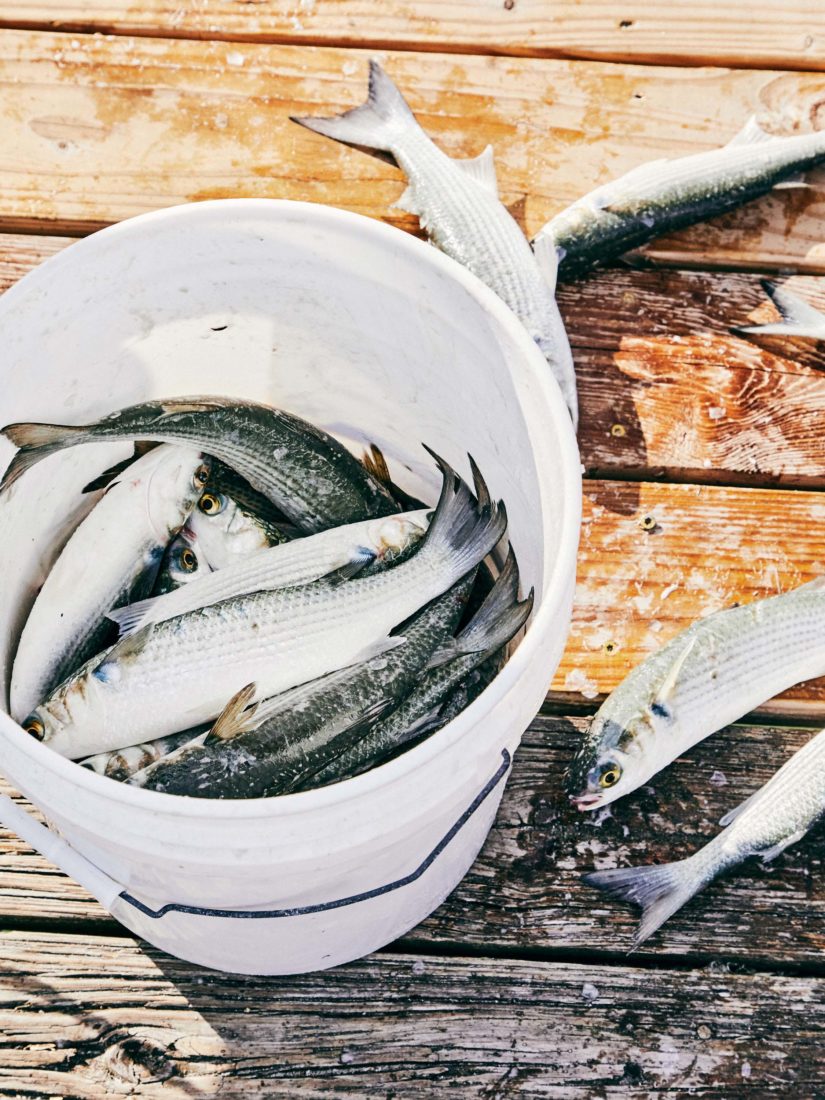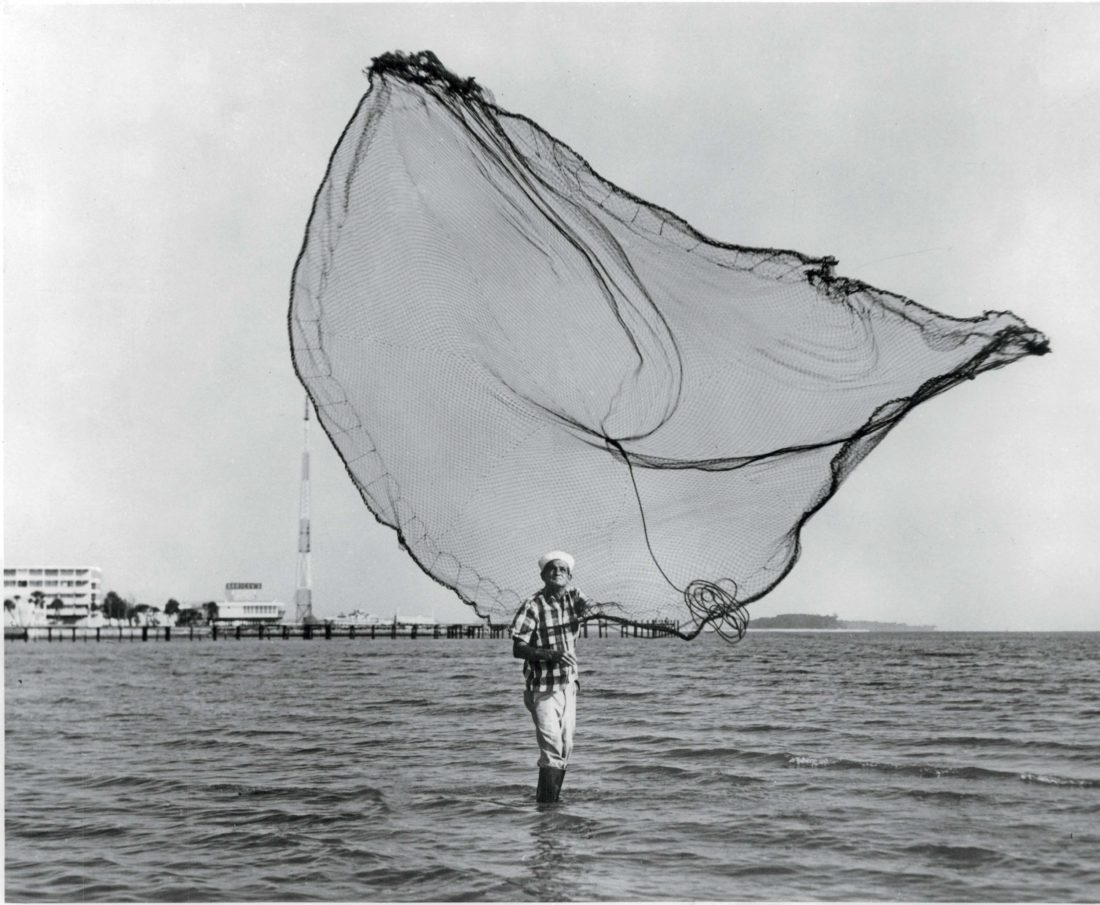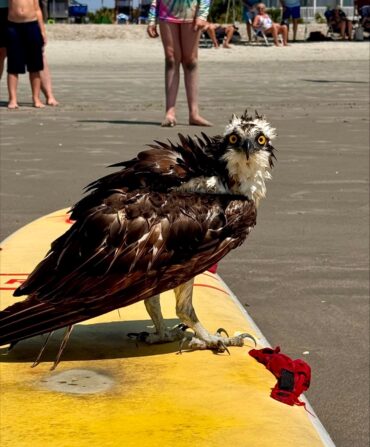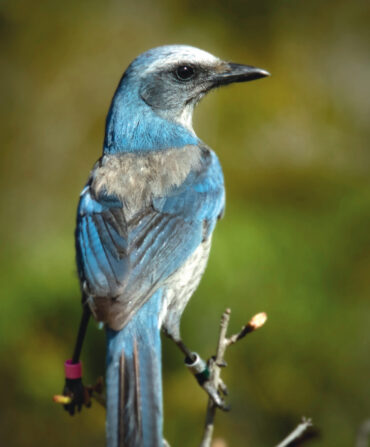I grew up on mullet and grits for breakfast. What some people call Biloxi Bacon. I’m referring of course to the fish, specifically the striped mullet, which has a rich, nutty taste due to its high oil content, and contains healthy omega-3 fatty acids. When churches and other organizations on the Gulf Coast host fish fries to raise funds for a local cause, or a politician throws a constituent rally, you can bet they will be serving fried mullet with hush puppies and coleslaw.
In the summers, my family decamped from the outskirts of Mobile to the Eastern Shore of Mobile Bay. There, I was fortunate to have as a mentor an old local named Duke Cox. Duke was a man of many talents and deep thoughts, one of them the notion that it is important to live a life full of the things that make you happy. Or as he would be more apt to put it, “The way to happiness is to avoid the things that make you unhappy.” He would often remind me, “Work ain’t work if you get pleasure from what you are doing, and a lot of that is about how you look at it.”
One of Duke’s talents was making cast nets. I was about five years old when he first made me one and taught me how to throw and spread it, reminding me all the while that this wasn’t something new: They were fishing with cast nets in the Bible. Eventually he taught me how to make them myself, tying the knots with a gauge and a net needle. “All you need to know to make a cast net,” he’d say, “is how to sit down and have some time on your hands.” He was left-handed and I was right-handed, and he taught me to be a left-handed net caster. But I remember him saying, “It don’t matter which hand you use, as long as it gets the job done right. Some people spend too much time worrying about being proper than about getting the job done.”
Mullet are vegetarians: They are among the few fish with a gizzard, which like a chicken’s gizzard grinds and digests plant material. In fact, one of my favorite dishes is fried mullet gizzards. A commercial fisherman in Florida was once acquitted for a fishing violation after a biologist testified in his defense, stating that only birds have gizzards, and since a mullet has a gizzard, it should not be considered a fish.
Striped mullet spend most of their lives in fresh or brackish water, but they migrate offshore and along the Gulf beaches in autumn and winter to spawn. That’s when the females are full of eggs. Mullet roe is a popular delicacy and was once known as the caviar of the South, or poor man’s caviar; locals tend to fry or salt it, then dry it. In Italy, bottarga, made from mullet roe, goes for more than $100 a pound. The male mullet is full of milt, sometimes called “white roe,” and some people like to eat that too, but Duke always said, “The first person to eat fish sperm must have been mighty hungry.”
Mostly, we preferred to fish for them in the summer. My family and I stayed in a house with a big screened-in porch that extended down the whole side of the house where we slept. Duke would come walking down the road about first light with a croker sack slung over his shoulder with his cast net in it. He would scratch on the screen to wake me up, and off we would go for a day on Mobile Bay.
We owned an old cypress cross-planked rowboat, and Duke taught me to row at a young age. At first, he would row with one oar and I would have the other until I got the hang of it and graduated to both oars. We were a team.
The boat had a fantail on the stern where Duke could stand. If we were in serious need of mullet to sell, Duke would be on the fantail with his cast net all made up and ready to throw, and I would row him backward into a school. If we just needed mullet for the table or to give to friends, I would take my turn on the stern with my smaller net. Duke was small in stature, but he could spread a big twelve-foot cast net in a perfect circle with a twenty-four-foot diameter, almost every cast.

There is an age-old question as to why mullet jump. If asked about this, Duke’s reply was either “Because it gives them pleasure to see the world above and get a breath of fresh air” or “You have to ask the mullet and let me know when you get an answer.” When we were searching for a school, he would point out, “See that mullet over there that just jumped? He’s a high jumper, which means either he’s in a hurry to get somewhere or something is chasing him. It’s not likely that he’s with a school, so there’s no need to worry about him.” Continuing the lesson, he would suggest, “We need to look for mullet that are just jumping up low and flipping back on their side. Those are happy mullet.” He would make a throw over those “happy” mullet, and it would be all the both of us could do to haul the cast net back in the boat.
We used to sell our fish to Mr. Stern, who ran a fish market in town. Duke’s friend who had a pickup truck would haul our catch to the market for a share or sometimes just for a mess of fish to eat. Duke was pretty good at bartering and trading, and he was always good for a joke. He would often do favors for people, and when they’d say, “Thanks,” he’d reply, “I can’t spend a thank-you” or “I can’t take that to the bank.” Then he’d slap his leg and laugh that contagious laugh of his. He also had only one eye, but he could see mullet better than most people could with two.
Duke said there ain’t but two ways to eat a mullet, and that’s fried or smoked. We had our own smoker that we’d made out of an old refrigerator. We took the motor out of the bottom so we could build a fire out
of hickory there, and cut out a small round hole in the base so the smoke could travel up inside. Next, we cut another round hole in the top to draw the smoke through. We would dress our mullet butterfly-style with the backbone in and place them on the refrigerator’s racks to smoke.
After mullet have spawned and returned to the bay and rivers, they are skinny and their meat has an unusual white coloring. Duke called them back-runners and said they weren’t fit to eat till they got some meat on their bones, usually around June. Sometimes, when we had caught some of those June mullet, we would pull the boat up to the beach and build a fire with driftwood. We’d heat up some cooking oil in a big cast-iron skillet, fry up a mess of mullet, sit on a log, and eat them with white bread and hot sauce. Duke would get real quiet, like he was in deep thought. Then he’d say, with a big smile, “There ain’t no mullet like a June mullet.”








